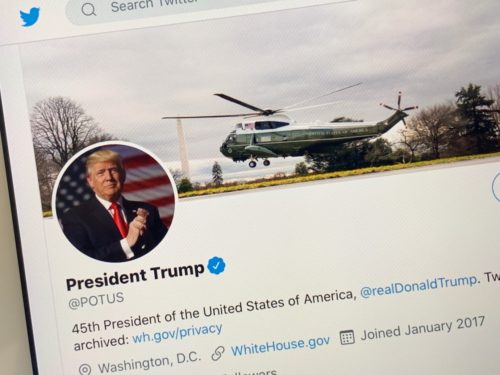We all know how President Trump (and other politicians) use Twitter and other social media platforms to get their messages to us without conventional media journalists filtering that message. Over the last week you can hardly have missed that President Trump is upset with Twitter (https://www.bbc.co.uk/news/technology-52821304) for; 1) adding a “fact checking” link to one of his tweets (https://www.bbc.co.uk/news/technology-52815552) and 2) censoring another tweet by hiding it (https://www.bbc.co.uk/news/technology-52846679).
Many people have supported (and in the way of the internet, criticised) this move by Twitter. The company has a set of rules that means “regular users” can have their accounts, in extreme cases, removed, which apparently Twitter have not been applying to the President, allowing him “free speech”. Twitter have blocked official government campaigns when they thought they may break local laws (https://www.bbc.co.uk/news/world-europe-47800418). Now President Trump has taken his power as President of the United States and signed an executive order (https://www.bbc.co.uk/news/technology-52843986) targeting social media companies and these giant tech companies are upset.
But what does this mean? Up until now the giant tech companies, unlike traditional media were not usually responsible for the content carried on their services as they exercised no editorial control over that content. They were not publishers but were considered forums, the content that was carried was the user’s responsibility, having followed the site rules. President Trump’s position is that if companies like Twitter are going to hide or implement “fact checking” then they are exercising editorial control and so the legal protection they have had as content platforms must be removed. His executive order is the first step (in a long process) to remove that protection.
However if the companies become editorially responsible for content, the way these giant companies operate will have to change. More than 500 hours of video is posted to YouTube every minute (https://www.statista.com/statistics/259477/hours-of-video-uploaded-to-youtube-every-minute/) – edit that! If social media companies are treated like publishers, with the associated responsibilities then how we post content to them will be changed and probably things will be a lot less “instant”.
At the moment this is an American situation, but it is not unlikely that if it “happens in America on the internet” then it will reach the rest of the world.
This blog post is not to support either side of this political argument – I wrote it to highlight the technology issues in this situation, in my professional opinion. Please follow the links included to check the facts I have used and feel free to form your own opinions from these or other authoritative sources on the internet (https://www.brookes.ac.uk/library/library-services/information-skills/evaluating-web-sources/#so).
Clive
Clive has worked at Octagon Technology since 1995. His special responsibility for data privacy and security is a commitment and promise he wants to deliver to his clients. Therefore, to understand these issues better and keep his knowledge up to date he is currently studying on a distant-learners course for a MSc in Advanced Computer Security and Digital Forensics at Napier University.
It has always been Clive’s ambition to deliver responsive and reliable technology. Therefore, he is always involved in designing, researching and testing technology solutions, particularly where more complex problems exist, to deliver the results their clients need.
Kamila
General Manager


